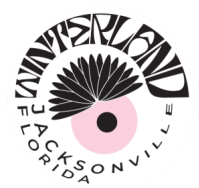Within the arena of healthcare, a shift towards positive and holistic approaches is gaining prominence, especially with regards to managing minor ailments. Instead of exclusively counting on reactive measures, for example treating signs and symptoms because they arise.
A positive healthcare strategy concentrates on prevention, early recognition, and comprehensive well-being. This short article explores the value of positive healthcare and it is holistic approach in effectively managing minor ailments.
Understanding Proactive Healthcare
Proactive healthcare involves planning to prevent illnesses and promote overall well-being before health issues become severe. It emphasizes lifestyle choices, regular check-ups, and adopting healthy habits to help keep ultimate health.
Unlike reactive healthcare, which mainly addresses illnesses once they occur, positive healthcare aims to understand potential risks and address them preemptively.
Holistic Approach to Minor Ailments
An important element of positive healthcare is adopting an integrative approach when treating minor conditions. Holistic healthcare considers how every aspect of well-being influence each other physical, mental, and emotional well-being have the ability to a reciprocal effect.
Rather of just treating signs and symptoms for minor ailments, holistic approaches make an effort to identify and address their root causes while considering various areas of a person’s existence.
Lifestyle Modifications
Proactive healthcare encourages individuals to adopt lifestyle modifications that will prevent or manage minor ailments, including developing healthy eating habits, participating in regular physical activity and managing stress effectively. By attending to such core aspects, individuals can strengthen their overall well-being while decreasing the likelihood of minor ailments.
Preventive Measures
Regular check-ups and screenings are essential aspects of good healthcare, enabling early recognition and intervention to deal with potential health issues before they worsen or progress further. Regular appointments also actually safeguard minor illnesses from worsening with time. Regular exams, vaccinations and health screenings all contribute towards keeping our bodies in peak shape by recognizing any problems early.
Mind-Body Connection
The holistic method of minor ailments recognizes your brain-body connection. Emotional and mental well-being can considerably impact health. Practices for example meditation, mindfulness, and reducing stress techniques are incorporated to handle minor ailments better.
Nutrition and Dietary Guidance
Positive healthcare emphasizes the function of diet in stopping and managing minor ailments. Nutrient-wealthy diets tailored to individual needs supports your body’s healing processes and boost all around health. Holistic healthcare providers frequently provide nutritional guidance included in the treatment for minor ailments.
The Role of Integrative Medicine
Integrative medicine, which mixes conventional medical practices with complementary and alternative therapies, plays an important role in positive healthcare.
This method views both conventional and holistic treatments, supplying an extensive toolkit for managing minor ailments. Integrative medicine can include acupuncture, herbal treatments, maple grove chiropractic, along with other complementary therapies to boost overall well-being.
Empowering Individuals through Health Education
A simple facet of positive healthcare is empowering people with understanding regarding their health. Health education plays a vital role in preventive steps and early intervention.
Comprehending the signs and signs and symptoms of minor ailments, in addition to understanding how lifestyle choices impact health, empowers visitors to positively take part in their well-being.
Social Support and Community Engagement
Positive healthcare extends beyond individual efforts and emphasizes the significance of support and community engagement. Engaging having a supportive community fosters a feeling of belonging and encourages healthy behaviors.
Whether through local health groups, online forums, or community occasions, individuals can share encounters, gain insights, and make a network that includes for their overall well-being.
Environmental Considerations
An frequently overlooked facet of positive healthcare may be the impact from the atmosphere on health. Including factors for example water and air quality, contact with pollutants, and use of eco-friendly spaces.
A positive approach involves thinking about the ecological context and promoting for policies that promote a wholesome living atmosphere. Creating awareness about ecological influences empowers visitors to make informed choices that positively impact their own health.
Technology Integration for Health Monitoring
Within the digital age, technology plays a substantial role in positive healthcare. Wearable devices, health apps, an internet-based platforms provide tools for health monitoring and management. Individuals can track their exercise, monitor vital signs, and access sources for mental well-being.
Integrating technology into positive healthcare enables legitimate-time data collection, enabling better-informed decisions and enhancing self-awareness in managing minor ailments.
Conclusion
Positive healthcare, using its holistic method of minor ailments management, represents a paradigm transfer of the healthcare landscape. By concentrating on prevention, early recognition, and comprehensive well-being, individuals can take control of the health insurance and lessen the impact of minor ailments on their own lives.
Integrating positive healthcare practices, including lifestyle modifications, preventive steps, and holistic treatments, fosters a positive mindset towards well-being and plays a role in a more and healthier fulfilling existence.

